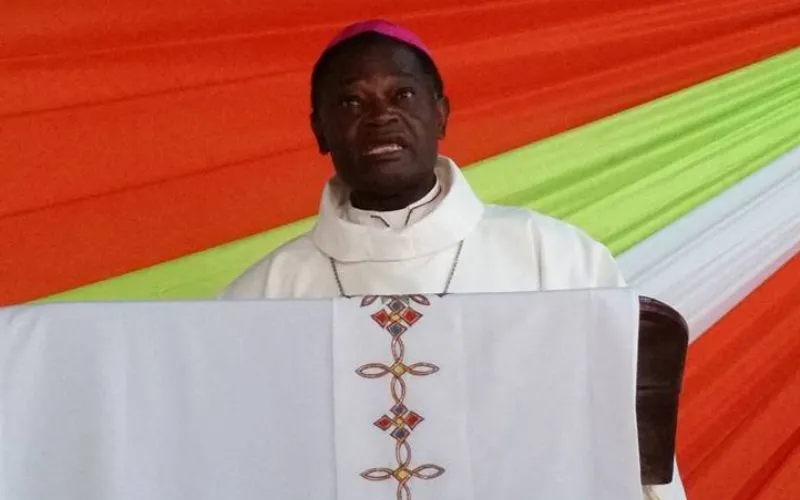The Catholic Bishop says the violence meted out on innocent people “shatters the very core of our moral fabric and calls for our collective condemnation.”
He says that the disruption of and the harassment of Christians participating in the Eucharistic celebration “not only violate the sanctity of these institutions but also undermine the values of compassion, empathy, and respect that lie at the core of our faith.”
“The Mass is a sacred and solemn occasion where the faithful gather to worship, seek spiritual nourishment, and strengthen their relationship with God. Such disruptions not only disrespect the sanctity of the Mass but also infringe upon the rights and freedom of religious expression,” Bishop Nkuo says, adding that God’s house “should be a haven of peace, where all can come together in reverence and unity.”
He continues, “According to International Humanitarian Law, places of worship and other religious sites should be sanctuaries where worshippers feel safe to practice their faith, sanctuaries of peace, healing, and solace for all individuals seeking comfort and divine intervention.”
In the statement, the Catholic Church leader says Cameroonians need to “stand united against this brutality and affirm our commitment to peace, justice, and compassion.”
He adds, “We must stand together in denouncing such atrocities and demand that every child be granted the right to live in safety, peace, and dignity.”
The Local Ordinary of Kumbo since his consecration in September 2006 condoles with the family of Cherish Lemnyuy, the University student who lost her life in Nkambe and prays for the peaceful repose of her soul.
Bishop Nkuo also appeals for “prayers, love, and support” towards those affected by the attacks.
He says armed groups perpetrating violence against civilians need to “reflect upon their actions and give the population the much-desired freedom to go about their spiritual and other activities unhindered.”
“We once more make a strong appeal to the known warring parties to give peace a chance by using all the means and opportunities available through sincere dialogue to bring an end to this crisis that is long overdue. Let us pray for the victims and their loved ones, offering solace, support, and strength during this difficult time,” says the Bishop of Kumbo.








